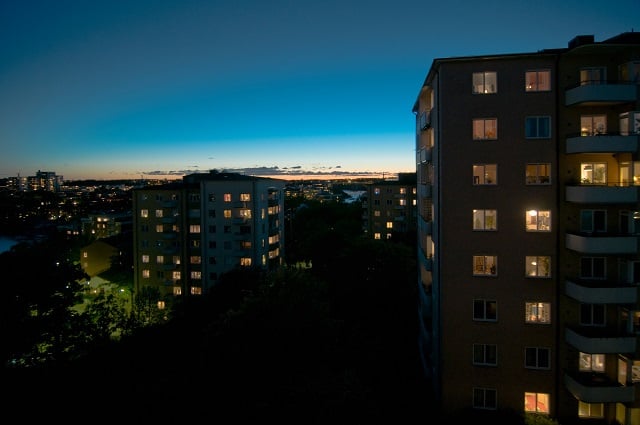Rent controls apply to many properties in Sweden, but in the larger cities the queues for these so-called first-hand contracts are so long that many people wait more than ten years for an apartment. These leaves many people relying on sublets or “second-hand” (andra hand) rentals, particularly since a tightening of requirements to get a mortgage has made it harder for Swedish residents to buy property.
And the cost of these second-hand rentals has soared over the past decade.
Figures shared with The Local by the National Board of Housing (Boverket) in 2019 showed a steady increase in the price of second-hand rentals when it came to houses, rooms, and sublets of both owned and rented apartments. The increase was most significant among sublets of owned apartments, and in the major cities where the housing shortage is particularly acute.
Assar Lindén, a lawyer at Boverket, told The Local that the groups most likely to need second-hand rentals were young people, students, and recent immigrants, particularly those who move for work or as an asylum seeker, rather than those who move to join family members.
“A lot of people have come to Sweden in recent years. We had a housing shortage before then, but this has made things really difficult, and we know that a lot of people are paying a lot of money to live in the places they want to live,” Lindén told The Local.
The housing shortage is particularly acute in Sweden’s major cities, making second-hand rentals more common there. Lindén noted that the historic university cities of Lund and Uppsala have a large supply of student accommodation, whereas this is in shorter supply in Stockholm and Gothenburg.
“You can find people from all demographics struggling with housing, but it’s mostly the young, newly arrived people and foreign workers,” he explained.
“Then there are many people being recruited to Sweden [for work]; some companies have arrangements for finding housing but if your company doesn’t offer this, you’ll have a hard time. We know there’s a substantial black market, but it’s very hard to map this.”
Second-hand rentals are more expensive than first-hand contracts because the landlord is able to charge a premium, which increases if the property is furnished. However, the Swedish law sets a limit on exactly how much extra landlords can charge, and figures suggest many are asking for much more money than they should.
The average second-hand rental is around 65 percent more expensive than an equivalent first-hand contract, according to statistics from Boverket. And tenants who rent from a property owner pay on average 138 percent more than an equivalent first-hand rental.
When it comes to avoiding illegal rentals, Lindén has two key pieces of advice.
The first is to make sure the landlord has permission to rent the apartment, therefore avoiding black market rentals and ensuring you have access to the proper channels in the event of any dispute.
Secondly, renters should be aware of what kind of apartment they’re renting.
“If you’re renting from someone who has a first-hand contract, they are not allowed to take more money from you than they pay themselves, unless it’s furnished and then they can add ten to 15 percent more,” he says.
“If the landlord owns the apartment, there’s a different law and it’s pretty generous [towards landlords] because they have the right not only to cover their own costs but also to cover the cost for loans and financing. This applies even if they don’t have any loans, for example if you inherited the apartment; you can still charge the tenant the amount of what the loans would be. There’s not a lot you can do about that, and in an expensive area they can charge quite a lot.”
It is possible for tenants to dispute unfairly high prices, and in fact more and more are doing so. In 2018 alone, more than 300 people complained about being overcharged for their rent, and Boverket has warned of a highly unregulated second-hand market.
But the true number of people being overcharged is likely to be much higher. Lindén told The Local that when cases go to court, “the price is seldom the only issue”.
“A lot of people are paying much more than they should, but the general impression is that they seem to accept this to a large extent. When people do make a fuss or go to court, it’s almost always when another conflict has arisen and they think they may as well complain about the high rent at this point as well,” he said.




 Please whitelist us to continue reading.
Please whitelist us to continue reading.